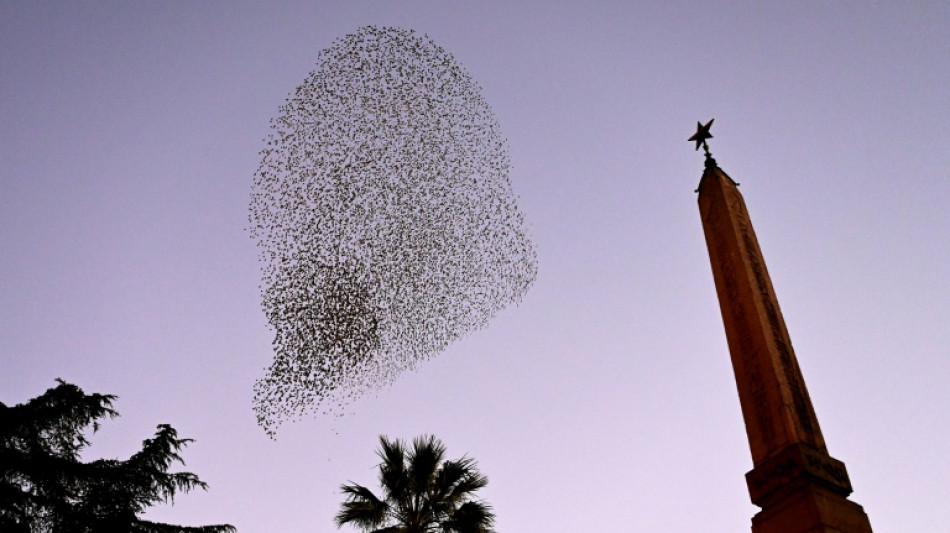
-
 Vonn to provide injury update as Milan-Cortina Olympics near
Vonn to provide injury update as Milan-Cortina Olympics near
-
France summons Musk for 'voluntary interview', raids X offices

-
 Stocks mostly climb as gold recovers
Stocks mostly climb as gold recovers
-
US judge to hear request for 'immediate takedown' of Epstein files

-
 Russia resumes large-scale strikes on Ukraine in glacial temperatures
Russia resumes large-scale strikes on Ukraine in glacial temperatures
-
Fit-again France captain Dupont partners Jalibert against Ireland

-
 French summons Musk for 'voluntary interview' as authorities raid X offices
French summons Musk for 'voluntary interview' as authorities raid X offices
-
IOC chief Coventry calls for focus on sport, not politics

-
 McNeil's partner hits out at 'brutal' football industry after Palace move collapses
McNeil's partner hits out at 'brutal' football industry after Palace move collapses
-
Proud moment as Prendergast brothers picked to start for Ireland

-
 Germany has highest share of older workers in EU
Germany has highest share of older workers in EU
-
Teen swims four hours to save family lost at sea off Australia

-
 Ethiopia denies Trump claim mega-dam was financed by US
Ethiopia denies Trump claim mega-dam was financed by US
-
Norway crown princess's son pleads not guilty to rapes as trial opens

-
 Russia resumes strikes on freezing Ukrainian capital ahead of talks
Russia resumes strikes on freezing Ukrainian capital ahead of talks
-
Malaysian court acquits French man on drug charges

-
 Switch 2 sales boost Nintendo profits, but chip shortage looms
Switch 2 sales boost Nintendo profits, but chip shortage looms
-
China to ban hidden car door handles, setting new safety standards

-
 Switch 2 sales boost Nintendo results but chip shortage looms
Switch 2 sales boost Nintendo results but chip shortage looms
-
From rations to G20's doorstep: Poland savours economic 'miracle'

-
 Russia resumes strikes on freezing Ukrainian capital
Russia resumes strikes on freezing Ukrainian capital
-
'Way too far': Latino Trump voters shocked by Minneapolis crackdown

-
 England and Brook seek redemption at T20 World Cup
England and Brook seek redemption at T20 World Cup
-
Coach Gambhir under pressure as India aim for back-to-back T20 triumphs

-
 'Helmets off': NFL stars open up as Super Bowl circus begins
'Helmets off': NFL stars open up as Super Bowl circus begins
-
Japan coach Jones says 'fair' World Cup schedule helps small teams

-
 Equities and precious metals rebound after Asia-wide rout
Equities and precious metals rebound after Asia-wide rout
-
Do not write Ireland off as a rugby force, says ex-prop Ross

-
 Winter Olympics 2026: AFP guide to Alpine Skiing races
Winter Olympics 2026: AFP guide to Alpine Skiing races
-
Winter Olympics to showcase Italian venues and global tensions

-
 Buoyant England eager to end Franco-Irish grip on Six Nations
Buoyant England eager to end Franco-Irish grip on Six Nations
-
China to ban hidden car door handles in industry shift

-
 Sengun leads Rockets past Pacers, Ball leads Hornets fightback
Sengun leads Rockets past Pacers, Ball leads Hornets fightback
-
Waymo raises $16 bn to fuel global robotaxi expansion

-
 Netflix to livestream BTS comeback concert in K-pop mega event
Netflix to livestream BTS comeback concert in K-pop mega event
-
Rural India powers global AI models

-
 US House to vote Tuesday to end shutdown
US House to vote Tuesday to end shutdown
-
Equities, metals, oil rebound after Asia-wide rout

-
 Bencic, Svitolina make history as mothers inside tennis top 10
Bencic, Svitolina make history as mothers inside tennis top 10
-
Italy's spread-out Olympics face transport challenge

-
 Son of Norway crown princess stands trial for multiple rapes
Son of Norway crown princess stands trial for multiple rapes
-
Side hustle: Part-time refs take charge of Super Bowl

-
 Paying for a selfie: Rome starts charging for Trevi Fountain
Paying for a selfie: Rome starts charging for Trevi Fountain
-
Faced with Trump, Pope Leo opts for indirect diplomacy

-
 NFL chief expects Bad Bunny to unite Super Bowl audience
NFL chief expects Bad Bunny to unite Super Bowl audience
-
Australia's Hazlewood to miss start of T20 World Cup

-
 Bill, Hillary Clinton to testify in US House Epstein probe
Bill, Hillary Clinton to testify in US House Epstein probe
-
Cuba confirms 'communications' with US, but says no negotiations yet

-
 Iran orders talks with US as Trump warns of 'bad things' if no deal reached
Iran orders talks with US as Trump warns of 'bad things' if no deal reached
-
From 'watch his ass' to White House talks for Trump and Petro


Magical but messy: Rome scares off its starlings
As the sun sets over central Rome, five figures in white overalls move under the trees. They wave speakers emitting a mix of sharp cries, and the birds rise into the air.
Every winter, the skies over Italy's capital are filled with the mesmerising sight of thousands of starlings swooping and diving in unison.
But when they stop to rest on the trees, their droppings coat the pavements and cars below -- prompting the city authorities, every year, to try to scare them away.
"We act on their fear reflex by using their own alarm call," said Marianna Di Santo, clad head-to-toe in white protective clothing and heading towards the birds gathered in trees around Termini central train station.
"It's as if they were warning each other that this is a dangerous place and they should move away," said Di Santo, whose company, Fauna Urbis, is hired by the Rome authorities to disperse the starlings.
- Up to one million -
Between October and February every year, millions of starlings migrate from northern Europe to Italy in search of warmer temperatures for the winter.
Their synchronised ballets -- murmurations -- over the Eternal City's centuries-old churches, palaces and ruins entrances passers-by.
"I've never seen such a thing in my life. It's spectacular," said Spanish tourist Eva Osuna, taking out her phone to capture the magic.
The glossy dark-feathered birds, which measure up to 20 centimetres each, spend the day feeding in rural areas before heading back into town to sleep, explains ornithologist Francesca Manzia from Italy's League for Bird Protection (LIPU).
"In the city, the temperatures are higher and the light helps them find their way around, and protects them from predators," she told AFP.
Warmer temperatures in northern European caused by climate change have shortened the starlings' stay in Italy, but their sheer numbers make them a force to be reckoned with.
Between 500,000 and one million are believed to be in Rome this year, according to one expert.
Naturally "gregarious", according to Manzia, they stick together at night, creating collective dormitories in the trees.
She insisted the starlings "do not carry diseases" but pose problems "because of their droppings, which make the roads slippery and smell very strong".
- In their nature -
Such is the problem that, even on a clear day, it is not uncommon to see Romans walking along tree-lined streets with umbrellas as protection against the birds.
City authorities use sounds and also lights not to chase the birds out of the city, but to split them up into smaller, more manageable groups.
Sounds are "the most simply and effective" way of moving the birds on, said Valentina de Tommaso from Fauna Urbis.
She works two or three times a week near Termini, which -- with its lights and shelter from the wind -- is a "comfortable" place for the birds to rest.
"We play recordings for about 10 minutes, with breaks in between so they do not get used to the noise" -- a tactic that aims to be annoying but harmless, she said.
The piercing noise draws a small crowd, some of them approving, others less so.
"They pose lots of problems. Walking around under flocks of starlings is not really ideal," said Francesco Fusco, a 55-year-old engineer.
"It's in their nature. We are not going to make them wear nappies!" he said, laughing.
F.AbuShamala--SF-PST




